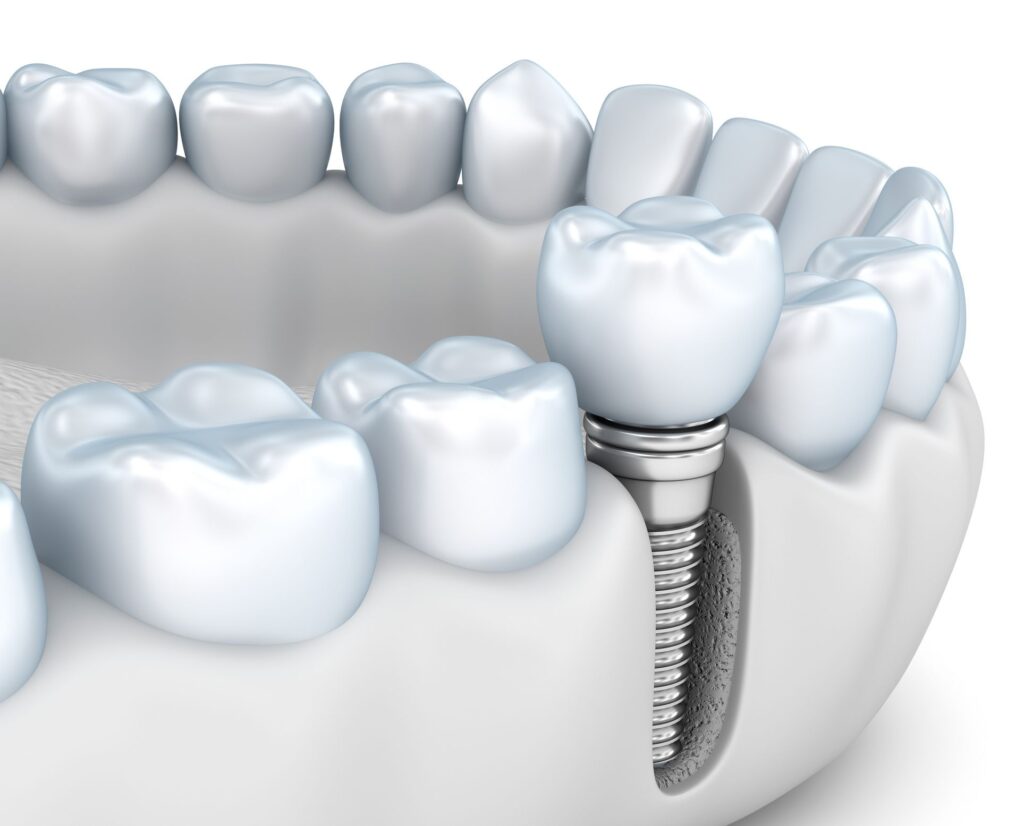Millions of people around the world may lose one or more teeth in their lifetimes. They can feel self-conscious about gaps in their smile and may have trouble with their usual oral functions if they have missing teeth. But you might not know that tooth loss can put the rest of your smile in danger, including your jawbone.
Not all tooth replacement solutions from your dentist can address potential damage to bone in your jaw. Dental implants offer long-lasting dental restoration as well as protection for your jaw.
You will need to consult with your dentist to determine if implant dentistry is right for your specific health needs. But you can also read on to learn details about how missing teeth affect the health of your jawbone and how dental implants can help.

What Happens to the Jaw After Tooth Loss?
A healthy dental patient has a whole set of teeth, and each tooth features a root that extends below the gumline to reach the jawbone. The tooth root provides stimulation for the jawbone that keeps it strong. When you lose a tooth, you also lose this tooth root, and the jawbone no longer receives this stimulation.
In its absence, the bone in the jaw will begin to deteriorate. This weakening in the jaw may make the facial structure seem to shrink, which will encourage the skin in the area to sag. A decline in jaw structure will also lead to shifting and other dental damage within the remaining teeth.
You cannot stop this degeneration in the jaw caused by tooth loss on your own. You will need targeted tooth replacement treatment to protect your jawbone and prevent this further deterioration of your oral health after tooth loss.
How Do Dental Implants Help Jaw Health?
A dental implant replaces the entire tooth, including the missing tooth root. The device features a titanium post anchor that a dentist inserts into the jaw below the gumline. This anchor provides stimulation to the jawbone once again, preventing its deterioration.
The anchor also fuses with the jawbone to establish a strong foundation that supports prosthetic teeth above the gumline. This way, you can experience comprehensive dental restoration on multiple levels. Removable tooth replacements like dentures will not replace teeth below the gumline and cannot offer these same restorative benefits.
Is My Jaw Healthy Enough for Dental Implants?
Dental implants rely on the foundation established by this anchor fusion process with the jawbone. In order for this to happen successfully, you must retain enough healthy jawbone to support the anchor of the implant. If you lose too much bone in the jaw in the wake of tooth loss, the fusion cannot happen the way that it should.
Your dentist evaluates the health of your jaw before starting implant dentistry treatment to ensure you are a good candidate for this process. They use x-ray imaging to view the condition of your jaw. Schedule your dental consultation today to determine your eligibility for tooth replacement using dental implants.
